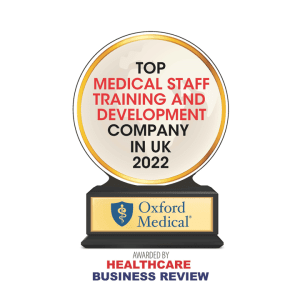There’s no doubt that the normal paths of training to become a doctor can involve some stressful situations. So, if you have any involvement in this training, then it’s essential to be aware of how this can affect the ability to learn. It can have a critical impact on concentration levels and memory process. This may be temporary, but at its worst, can sow the seeds of depression and burnout which are all too prevalent. The best teachers realise that they need to watch out for this and support their learners on a human level where possible. We are all individuals, with our own stories to tell and it pays to make space for these stories to be told. I’ve recently had the sobering experience of corresponding with Bohdan, a final year medical student in Ukraine. (His name has been changed at his request). Here, shared with his permission, is his description of his recent experiences.
Bohdan’s Experience
“As a student you are mostly focused on studying, learning new things, on exams, tight deadlines and rising to the challenges.
But stress changes your priorities, your goals, your mental health, and even physical health.
Just a few days before our new semester started, I was excited to be attending classes in hospitals rather than online as covid cases have declined and most of the students and doctors are vaccinated.
As this is my final year, I was excited to learn new things and wanted to spread my focus beyond the standard curriculum. I was researching the PLAB exam. I was trying to join a research programme and preparing to attend a medical conference. Life was good until some news came that war was coming. At first, I thought it was fake news and continued with my university classes as normal. But it started to make an impact. During every class, I’d start to be distracted. If war starts, then what’s the future going to be like?
The worry grew day by day as it became clearer that war was going to start soon. All the embassies closed. Their staff started leaving the country. So, I decided to book a flight so that I too would leave the country. But then I remembered we are having live classes. I didn’t know what to do.
Then -it seemed suddenly in the end – war started and our teachers had to stop our classes. It was very upsetting for me to see the places I had visited burn. I stressed about friends and their family. Are they safe not? In this whole period, I couldn’t concentrate on my studies as it was very stressful. I felt depressed. I felt helpless.
After a few days, our classes restarted online. One brave doctor took our classes from the war zone – I could literally hear sirens in the class. Sadly, I had left my possessions there – all my clothes, my books and all my notes. Now I can only study from the internet and am trying my best to learn – but my concentration is not that good at the moment.
Not long ago, we were taking classes in hospital and preparing for our future. Now we are just surviving. It is a lot to go through. These stressful events changed my life in every aspect. In the past, I could study for hours. Now I feel exhausted after 1 hour. I’m losing my hair. But I want to be a good doctor. So, I am trying to get back to the track, to increase my knowledge and achieve my goals.”
Reflections
I’d like to thank Bohdan once again for sharing his experiences with us and for giving us permission to share them with you.
Our medical students and registered doctors include people from a broad variety of cultural backgrounds and nationalities.
How well do you know their stories?
Stephen McGuire – Managing Director
Footnote: We have provided Bohdan with free access to our Teach the Teacher Online Course to show our appreciation for allowing us to share his story.










